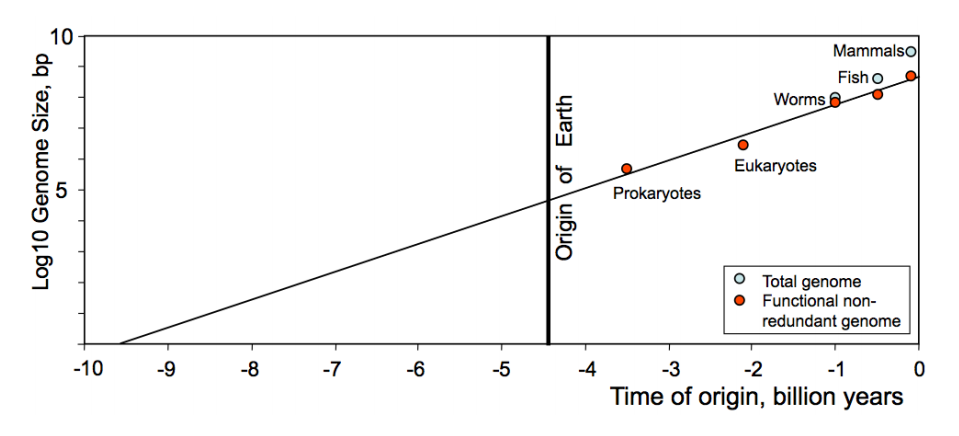I went up to Portland with a friend last night to hear James Hansen
speak before about 1,000 people on "Avoiding Climate Catastrophe: Putting Science Before Politics," or, as he renamed his talk, "From Itinerant Famering to White House Arrests."
I didn't realize he came from such a humble background -- his father was an itinerant farmer in Iowa, and they moved around frequently farming rented land paid for with half their crop.
I heard Hansen speak a few years ago at a PAGES conference in Corvallis, and while he's not the most dynamic speaker out there, this time he seemed more polished and, perhaps, more sure of himself. He's clearly embraced full-bore activism since retiring, and didn't hestitate to speak of his arrests, his grandchildren, or his travails with the Bush administration.
One line that got a lot of laughs was when he mentioned he served on a climate task force "chaired by Vice President Dick Cheney."
He put up this slide
NASA Mission Statement
To Understand and Protect the Home Planet
which was a change made during the Bush administration shortly after Hansen started speaking out, often by talking directly to the
New York Times.
Hansen said the climate problem is solvable if coal and unconventional fossil fuels like tar sands and shale gas stay in the ground. He opposes the Keystone XL pipeline because "it's the first big spigot for unconventional fossil fuels." The Canadian environmental minister is "getting worried," he said, and that the tar sands will largely stay in place if the pipeline is not approved.
He is clearly disappointed with the political arena, not just in the United States but with everywhere else too, noting that while Norway looks like a green country from the outside, their state-owned company STATOIL has their hands in the Canadian tar sands.
He said "our Congress people are heavily under the influence of monay," saying clearly it was a problem of both parties, and, noting the recent Senate vote against background checks, "they are obviously not looking out for the public's interest."
He said "I think we have to have a third party that's not a fringe party," but, he said, a centrist party that is neither extreme right like the Tea Party or extreme left like the Green Party. He said he thought the public was very fed up with a Congress that doesn't respond to their needs and seemed optimistic a third party might happen by 2016. (Me, not so much.)
Hansen is part of the
Our Children's Trust team that is preparing to file suit against the federal governement on grounds of intergenerational justice. He said "Our parents didn't know" about the climate problem, "but we can only pretend we don't know."
He spent a lot of time talking about a carbon tax that is 100% refunded back to all legal residents on an equal per capita basis. "About 60% of people today would get back more of a carbon tax than they paid," with exceptions being people like those who own more than house or who fly alot. "But they can afford it," he said.
His ideal is a $10/tonne tax that rised $10 each year up to $100/tonne. A steadily rising price allows businesses and people to plan ahead, and make noncarbon purchases accordingly; Hansen said economic models show this would lead to a 30% reduction in US emissions in 10 years. He was adamant that none of the tax should go to the government -- "Democrats cannot keep their hands off your wallet" he said, noting that schemes being talked about by Berner Sanders and Barbara Boxer would keep about 40% of the tax collected for government purposes.
"Reducing your [individual] carbon emissions doesn't help much," he said. "We need policy changes." Though he did ask people to think about becoming more of a vegetarian.
"The UN, the Copenhagen conference -- it's just a zoo. It's not going to work that way -- it requires the US and China."
He that if the US and China both adopted a carbon tax the world would follow.
He was very pro-nuclear, especially for 4th generation nuclear plants, and said "low doses of radiation are not harmful to us, and probably helpful." He noted that 1 million people a year die from air and water pollution mostly from fossil fuels, and nuclear power has never come close to that amount of carnage.
He took some questions and ended by saying "The climate problem is technically solvable, but then we have to introduce humans," and that China will be one of the countries most affected by climate change, but also that "one of the biggest hopes is China -- they do not deny the problem."
I wasn't surprised by anything Hansen said, and with this Portland crowd it all went over very well. Just the other day
he won the Ridenhour Courage Prize, and it was well-deserved. When the future looks back on this rather sad era with all its denialism, Hansen will be remembered as perhaps the preeminent scientist who struggled mightily to make the truth not just known, but acted upon.







